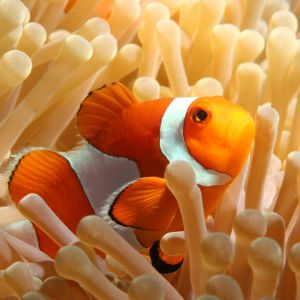
ee360+ Goal 2 Activities
Objective: A dynamic, and robust professional field with the structures and leadership programs needed to sustain high-quality environmental education over the long term at the local, state, regional, and national levels.
Outputs:
- Supporting state infrastructure and capacity building that enables educators to effectively teach about environmental issues
- Recognizing high-quality environmental education at universities and colleges through Accreditation
- Supporting states and provinces in developing certification programs
- Developing a civics and environmental education fellowship program that builds community resiliency and leadership
Image

Supporting State Infrastructure
NAAEE is helping the Affiliate Network increase its capacity and become stronger leaders in the field of environmental education, through training, networking, and long-term action planning.
Supporting state and provincial infrastructure that enables educators to effectively teach about environmental issues.
Strong and well-coordinated leadership and infrastructure are essential to sustaining high-quality environmental education over the long term at the state, provincial, and national levels. This requires leaders at the state level who are working in concert on carefully planned strategies to advance their EE efforts and prepare more educators to reach broader audiences. NAAEE is helping state leadership teams from within the NAAEE Affiliate Network to develop and grow the knowledge and skills they need to advance these efforts. Drawing on research on capacity building and input from state leaders, NAAEE and Affiliate leaders are identifying the ideal structures and programs needed on the state level to sustain environmental education for audiences in formal and nonformal settings over the long term. We developed an organizational assessment tool (OAT) for states to use to determine their strengths and gaps with regard to this model, and identify areas where training will assist them in building their capacity for effective and far-reaching environmental education.
Image

Accreditation
NAAEE Accreditation formally recognizes high-quality college and university programs that consistently prepare well-qualified environmental educators who possess the understanding, skills, and dispositions associated with environmental literacy, as well as the ability to apply them in their educational practices.
Supporting accreditation efforts to include environmental education in college and university teacher preparation programs.
NAAEE Accreditation formally recognizes high-quality college and university programs that consistently prepare well-qualified environmental educators. The purpose of Accreditation is to provide a third-party, standards-based review process that encourages and recognizes excellence in the preparation and professional development of environmental educators. The accreditation process facilitates the in-depth, continual assessment and improvement of environmental education preparation and professional development programs within higher education institutions.
Partners: University of Wisconsin-Stevens Point
Image

Certification
NAAEE is working with experts to improve its educator certification program, developed to ensure individuals are well prepared to design and implement high-quality programs that meet the national Guidelines for Excellence in environmental education.
In response to input from our Affiliates, NAAEE recently completed a substantial revision of the accreditation program, greatly simplifying the application process and making accreditation more accessible. The revisions have met with strong approval, and all existing certification programs have indicated their intent to apply for accreditation in the near future. To assist with program development, we also created a blueprint for designing certification programs and established a repository of sample documents (course requirements, forms, policy statements, etc.) from current programs.
To advance professionalism in the field of environmental education in Year 1 and beyond, NAAEE will continue to support the development and accreditation of certification programs by providing readily available tools that assist with program design and operation. We will also build on current marketing efforts to promote the merits of both earning certification and hiring certified educators. And, in keeping with input from a 2020 survey of Affiliates, we will pursue a micro-credential initiative that has tremendous potential for increasing access to high-quality environmental education training.
Image

CEE-Change Fellowship Program
Community leaders are uniquely able to build constituencies and influence attitudes, both in their communities and in the EE field more broadly. NAAEE’s highly successful EE Community Fellowship Program developed during ee360 will continue with ee360+ to expand community leaders’ EE leadership across the country.
The CEE-Change Fellowship, which supports leadership and innovation in civics and environmental education around the world, began in early July of 2021 with 30 Fellows. NAAEE recognizes the value in fostering leadership within schools and at the community level, promoting civic engagement and environmental responsibility, and ultimately building more resilient and healthy communities. The fellowship program is a partnership with U.S. EPA and the Cedar Tree Foundation to help strengthen environmental education and civic engagement.
Partners: Cedar Tree Foundation, United States Environmental Protection Agency (EPA), NAAEE
People: Nina Hamilton
Blog Series: CEE-Change, Together
Read CEE-Change Fellows' blog posts about their community action projects and work to strengthen environmental education and civic engagement capabilities.



